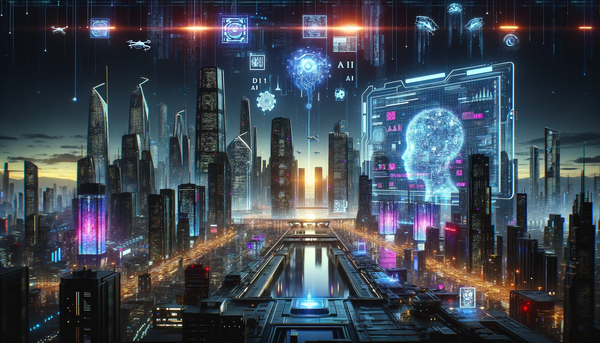The Disturbing Underbelly of Generative AI: Deep Fakes, Revenge Porn, and the Firestorm of Disinformation
Generative AI's dark side looms large with Deep Fakes, revenge porn, and rampant disinformation on social media. From altering public perception to personal devastation, the digital age's threats demand vigilance. Our reality and dignity are at stake.

In today's digital age, the marriage of technology and imagination has birthed wonders that defy the limitations of human capability. Among these is Generative AI, an innovation that allows machines to craft content, from text to images, based on patterns they've learned. But like any great force, this comes with a dark side. Deep Fakes, revenge porn, and the rampant spread of misinformation on social media stand as somber reminders of the potential threats these advancements pose.
Deep Fakes: More than Just Fiction
The term "Deep Fake" may sound like something out of a sci-fi novel, but its reality is more horrifying than most fiction. Powered by Generative AI, Deep Fakes refer to manipulated videos or audios that look and sound real. Think of it as the modern face of forgery, only far more insidious.
From falsified videos of world leaders declaring war, to celebrities allegedly making controversial remarks, Deep Fakes have the potential to reshape public perception and reality. As we increasingly rely on Bing Image Creator and similar platforms, the ease with which these can be disseminated grows. What happens when you can no longer trust your eyes or ears?
Revenge Porn: Technology's Darkest Use
While Deep Fakes threaten our collective reality, revenge porn assaults individual dignity. It refers to the sharing of explicit images or videos of someone without their consent, often for vengeance or blackmail. Imagine the trauma of having your most intimate moments paraded online for the world to see.
Now, combine this with the capabilities of Generative AI, and you have a recipe for personal devastation. Imagine maliciously crafted images that depict someone in situations they've never been in. With technology's rapid evolution, distinguishing between genuine and AI-generated content becomes an alarming challenge.
The Disinformation Deluge on Social Media
Of course, the troubles don't end with imagery. Words, too, can cut deeper than swords, especially in the era of social media. Disinformation, or deliberately spread false information, has turned platforms like Facebook, X, and Instagram into battlegrounds for truth.
Sensationalist headlines, misleading articles, and out-of-context snippets can spread like wildfire, manipulating public opinion and causing real-world harm. Remember the cases of lynchings due to false rumors or the political turmoils ignited by strategically placed lies? This isn't mere 'fake news'. It's a systematic breakdown of trust, and at its core, is the power of Generative AI gone rogue.
A Warning for the Future
As we tread further into this digital labyrinth, we must remain vigilant. The allure of platforms like Bing Image Creator, with its vast repository and Generative AI capabilities, is undeniable. But, we must be cautious. For every beautiful dream these technologies promise, there lies a potential nightmare.
Awareness is our first line of defense. By understanding the threats posed by Deep Fakes, revenge porn, and disinformation, we arm ourselves against them. It's a call for tech giants, governments, and individuals to unite in safeguarding our digital realm. For in the silence of our inaction, the dark side of technology grows, waiting to cast its shadow over all we hold dear.



